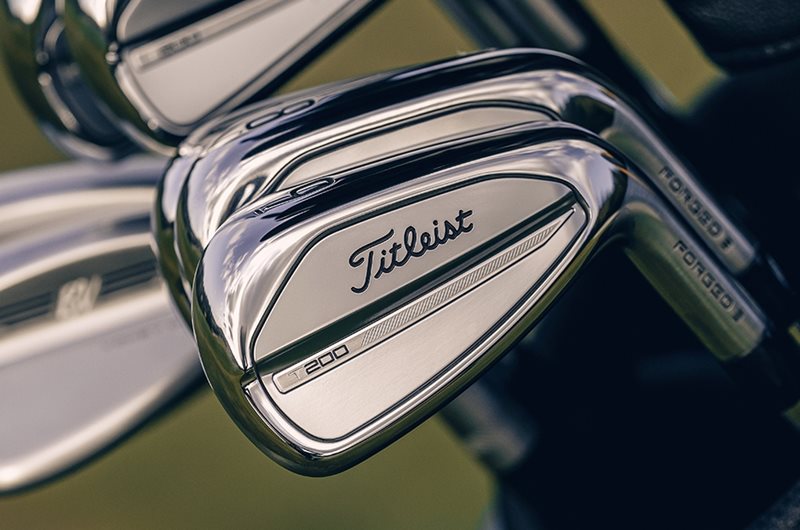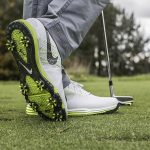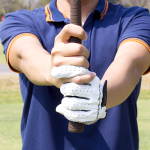Starting your golf journey is exciting, but finding the best golf clubs for beginners can feel overwhelming. With countless options on the market, ranging from forgiving drivers and hybrid clubs to game-improvement irons and complete beginner golf sets. How do you know which ones are right for you? The right golf clubs can dramatically improve your game, helping you hit cleaner shots, gain more distance, and build confidence on the course. Choosing the wrong set could lead to frustration, inconsistent swings, and wasted money.
In this guide, we’ll break down everything you need to know about selecting beginner friendly golf clubs, from choosing the most forgiving clubs to understanding what makes a good beginner golf set. Whether you’re shopping for a budget friendly beginner golf set or looking to build a customized club selection, by the end, you’ll know exactly what to look for so you can start playing with confidence!

Why the Right Golf Clubs Matter for Beginners?
As a beginner, using the right golf clubs can make a huge difference in how quickly you improve and how much you enjoy the game. Beginner friendly golf clubs are designed to be more forgiving, meaning they help reduce mishits and make it easier to hit the ball consistently. The wrong clubs, ones that are too heavy, too stiff, or not suited to your swing can lead to frustration, poor shots, and slow progress.
Choosing the right golf clubs ensures you get a comfortable, easy-to-swing set that helps you develop good habits from the start. With the right forgiving driver, irons, hybrids, and putter, you’ll gain confidence, improve shot accuracy, and enjoy the game much more.

What’s in a Golf Club Set?
Before buying golf clubs, it’s essential to know what’s inside a standard set. While a professional golfer may carry 14 clubs, beginners typically need fewer clubs to start.
Must Have Golf Clubs for Beginners:
- Driver (1-Wood)
The driver is typically the longest club in the bag, designed for maximum distance off the tee. As a beginner, the driver is key to getting the ball out there, especially on long par-4 and par-5 holes.
Beginners should choose a driver with a higher loft, around 10.5° – 12.5°. A higher loft helps you get the ball in the air with ease and reduces the chances of a slice.
Look for a graphite shaft, as it is lighter and easier to swing than a steel shaft, providing more control. If you’re a slower swinger, consider a senior or regular flex shaft to help with distance.

2. Fairway Woods (3-Wood or 5-Wood)
Fairway woods are versatile clubs that can be used both off the tee and from the fairway. The 3-wood and 5-wood are great options for beginners, as they provide a good balance between distance and forgiveness.
A 3-wood typically has a loft of around 15° – 17°, while a 5-wood has a loft of around 18° – 20°. Beginners can benefit from the higher loft of the 5-wood, as it makes getting the ball airborne easier.
Fairway woods are great for beginners because they have a larger sweet spot than long irons, offering more forgiveness on off-center hits.

3. Irons (6, 7, 8, and 9 Irons)
Irons are used for approach shots and shorter distances, and they are crucial for hitting shots when you’re closer to the green. As a beginner, focusing on mid and short irons such as the 6, 7, 8, and 9 irons, is the best approach.
Cavity Back Irons are ideal for beginners because they have a larger club head and a perimeter weighting system that helps increase forgiveness. This makes it easier to hit straight shots, even on mishits.
The 7-iron is often the most used club by beginners, as it’s a good all-around option for both distance and control.

4. Wedges (Pitching Wedge & Sand Wedge)
Wedges are essential for short game play and shots near the green. The Pitching Wedge (PW) is often included with most golf sets, while the Sand Wedge (SW) is essential for bunker shots and higher loft shots from the fairway.
a) Pitching Wedge (PW)
Typically used for shots between 100 and 130 yards, the PW has a loft of about 45° – 48° and is ideal for approach shots and chipping around the green.

b) Sand Wedge (SW)
With a higher loft of around 54° – 56°, the sand wedge is perfect for shots out of bunkers or rough. It also works well for short chips and delicate shots around the green.


c) Putter
The putter is arguably the most important club in your bag. It’s used on the greens for short distance shots to get the ball into the hole. For beginners, a good putter will give you more control and accuracy when putting.
There are several types of putters, such as blade putters and mallet putters. Mallet putters tend to offer more forgiveness and stability, making them a great choice for new golfers.
Most beginners will be comfortable with a 33” to 35” putter, depending on their height and stance.

5. Hybrid Clubs (3 or 4-Hybrid)
Hybrids are popular because they combine the best features of both irons and woods. They’re much easier to hit than long irons, which can be difficult for beginners to control.
Hybrids are forgiving, have a larger sweet spot, and help launch the ball higher in the air, making them perfect for approach shots, long distances, and when you need extra height on the ball.
A 3-hybrid typically replaces a 3-iron, while a 4-hybrid replaces a 4-iron. Both are excellent options for beginner players.

Key Factors to Consider When Choosing Golf Clubs for Beginners
1. Club Forgiveness
Forgiveness in beginner golf clubs refers to how well they reduce the impact of off-center hits.
New golfers should look for:
Game improvement clubs with more surface area ensure there are fewer mishits.
Distributed weight around the clubhead provides better balance.
Offer higher forgiveness than blade irons.

2. Shaft Material and Flex
The shaft significantly affects your golf swing speed and ball control.
Beginners should focus on:
Lighter and easier to swing than steel shafts.
- Senior (A) or Ladies (L) Flex- Best for slower swing speeds
- Regular (R) Flex- Ideal for moderate swing speeds
- Stiff (S) Flex- Best for faster swings however, not recommended for beginners.

3. Club Length:
The right golf club length improves accuracy and consistency in your swing. Standard clubs fit players 5’7” to 6’1”, but shorter or taller golfers may need custom golf clubs.
Club Length Recommendations:
- Under 5’5”- Consider clubs 1 inch shorter than standard.
- Over 6’2”- Consider clubs 1 inch longer than standard.

4. Loft Angle
Loft angle determines ball trajectory and ease of launch. Higher lofted beginner golf clubs are easier to hit and offer better launch control.
Best Lofts for Beginners:
- Driver- 10.5° to 12.5° for easier launch.
- Fairway Woods- Higher loft 15° to 18° for more control
- Hybrids- Replace long irons 3 or 4-iron for better forgiveness.

5. Budget and Affordability
Beginner golfers don’t need to spend thousands on premium golf clubs. Many affordable beginner golf club sets offer quality performance at a lower price point.
Best Budget Friendly Golf Clubs for Beginners:
- Callaway Strata Complete Set
- Wilson Profile SGI Set
- Cobra Fly XL Package Set

Should You Buy Individual Clubs or a Complete Set?
As a beginner, one of the biggest decisions you’ll face is whether to buy individual golf clubs or invest in a complete beginner golf set. Both options have their advantages, depending on your budget, playing goals, and commitment to the game.

1. Buying a Complete Beginner Golf Set:
For most beginners, purchasing a complete golf club set is the easiest and most cost effective way to get started. These sets typically include all the essential clubs you need, such as:
- A driver for long-distance shots
- Fairway wood or hybrid for versatility
- Set of irons, usually 6-9 irons for mid-range shots
- Pitching wedge and sand wedge for short game shots
- A putter for use on the greens
- A golf bag to carry your clubs
Benefits of a Complete Golf Set for Beginners
Buying a pre-packaged golf club set is often cheaper than purchasing individual clubs, making it a great option for beginners who aren’t ready to invest in expensive equipment.
These sets include forgiving, lightweight clubs that are designed to help new golfers hit the ball more consistently.
A complete set ensures you have all the essential clubs right away, so you can start playing without worrying about which clubs to buy next.
The clubs in a complete set are designed to work well together, ensuring a balanced feel and performance across all your shots.

2. Buying Individual Golf Clubs:
If you’re committed to learning the game and willing to spend more, purchasing individual clubs allows you to customize your set based on your swing, playing style, and preferences.
Benefits of Buying Individual Clubs
You can choose clubs that fit your specific height, swing speed, and skill level, leading to better comfort and control.
Individual clubs from premium brands may offer better materials and performance than what you’d find in a basic complete set.
Instead of buying all at once, you can build your set over time, adding clubs as you improve and understand your playing style.
Which Option is Right for You?
- If you’re new to golf and looking for an affordable, hassle free option, a complete beginner golf set is the best choice. You’ll get all the clubs you need to start playing right away.
- If you’re serious about improving your game and want higher quality clubs, buying individual clubs allows for a more customized experience, but it requires more research and investment.

Conclusion
Selecting the best golf clubs for beginners doesn’t have to be overwhelming. By focusing on forgiving, easy to use clubs, such as game improvement irons, a higher-lofted driver, hybrids instead of long irons, and a reliable putter, you’ll set yourself up for a smoother learning curve and more enjoyable rounds on the course.
Golf is a game of patience, practice, and constant improvement. With the right clubs in hand, you’ll be able to focus on developing your swing, improving accuracy, and having fun along the way. So, get your beginner-friendly golf clubs, head to the course, and start building your skills, one swing at a time!
FAQs
We answered a few frequently asked questions that we thought would be helpful for new golfers.
What should be the First Golf Club to Buy?
If you are building a golf set on a budget, start with an Iron Set for versatility. Followed by Woods, Wedges and a Putter.
What should be the Budget for My First Golf Set?
When considering how much to spend on your first golf set, it’s all about finding the right balance between cost and quality. Beginner sets typically range from $400 to $1200, offering a variety of options that cater to new players. While it might be tempting to opt for a very cheap set under $200, these often lack durability and key performance features, meaning you’ll likely need to replace clubs as you progress, ultimately costing more in the long run. Investing in a reasonably priced set from a reputable brand ensures you get reliable clubs that support your learning curve. A quality set will grow with you as you progress.
Are Hybrid Clubs Good for Beginners?
Hybrid clubs are great for beginners. They are easier to hit than long irons, offer more forgiveness, and help get the ball in the air with less effort. Replacing hard to hit 3 or 4-irons with hybrids can improve consistency and make the game more enjoyable for new golfers.
Should Beginners Buy Used Golf Clubs?
Beginners can buy used golf clubs, but it’s important to choose well maintained, beginner friendly clubs. Look for forgiving irons, a higher-lofted driver, and hybrids in good condition. Buying from a reputable seller or golf shop ensures quality, and it’s a great way to save money while starting out.



























